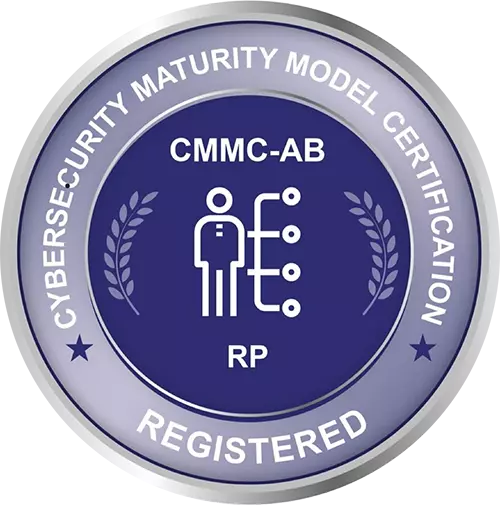
Patients often engage with multiple specialties, treatments, and providers that can risk fragmenting their care. Case and care management services are vital to addressing these challenges. They offer personalized care plans and support to ensure that patients receive the right treatments at the right times. Let’s explore the key benefits of these services, how they improve health outcomes, and how organizations like yours can benefit from these services through a partnership with HCRS.
Case and care management involves coordinated processes where healthcare professionals oversee each patient’s comprehensive medical needs. These managers are typically registered nurses or social workers who are tasked with the assessment, planning, implementation, and evaluation of each patient’s care. They act as central points of contact for these patients, ensuring that care is delivered smoothly between different providers and facilities. They also educate patients on their health, conserve practice resources, and avoid unnecessary spend for both patients and providers.
The primary difference between case management and care management lies in their focus. Case management is often used to coordinate care for patients with complex, high-risk medical conditions. Care management emphasizes treatment and prevention.
Both are important for improved patient outcomes, enhanced care coordination, and reduced healthcare costs, along with several other key benefits.
Case managers create customized care plans that take into account patients’ unique medical histories, lifestyles, and needs. They also make sure that patients adhere to prescribed treatments and follow-up appointments to prevent further complications.
In care management, professionals take a proactive approach to help patients manage chronic diseases like diabetes, hypertension, and asthma more effectively. Those who receive regular monitoring and guided interventions are less likely to experience emergencies that could lead to hospitalization.
As one doctor notes about these services, “We can prescribe medicine, but if the patient can’t get it or can’t afford it, then it doesn’t matter. By addressing barriers to care in real time, we’re preventing leaks instead of plugging leaks.”
When multiple providers are involved in a patient’s care, effective communication and coordination are paramount. Without clear, established plans, patients can experience gaps in their care, repeated tests, unnecessary treatments, and even conflicting medical advice.
Case and care managers act as liaisons between patients and healthcare providers so that all parties involved will have access to the same information, and will work toward common health goals. These managers understand the complexity of the healthcare system, and can navigate between its various settings — from hospitals to homes — for seamless care coordination.
Healthcare costs are a significant concern for both patients and providers. Unnecessary hospitalizations, duplicate tests, and unmanaged chronic conditions can drive up expenses. Case and care management aims to contain these costs by preventing readmissions, shortening hospital stays, and promoting more efficient use of healthcare resources.
For example, case managers can identify cost-effective alternatives to traditional care settings, like home health and outpatient care. They also advocate for early intervention strategies, which can avoid costly acute care down the road.
Many patients feel overwhelmed with the prospect of managing their own health, especially when dealing with multiple ailments or chronic disease. Case and care managers are crucial for educating them on their conditions so that they fully understand their diagnoses, treatment options, and long-term strategies.
This can empower patients to get directly involved with managing their own health, ultimately leading to improved well-being and reduced complications or relapses.
While traditional healthcare models often concentrate on treating illnesses after they’ve occurred, care management emphasizes early intervention and preventative measures. Managers work closely with patients to identify risk factors, promote healthy behaviors, and monitor early signs of potential problems.
For instance, a care manager might assist a patient with a high risk of heart disease by advising them on dieting, exercise, and medication. By being proactive, the patient is less likely to experience a negative health outcome like a heart attack or hospitalization.
Beyond hospitals and clinics, case and care management is also invaluable in specialty settings. These include behavioral health, rehabilitation, and long-term care, where the need for consistency and coordination is even greater.
Managers often address physical, mental, and emotional health, as well as social factors that can impact patient well-being.
HCRS offers case and care management services with tailored support for any organization. With our network of experienced professionals, your patients will receive personalized care plans that take into account their full medical histories, lifestyles, and preferences.
By combining these plans with preventive strategies, your patients will have access to comprehensive solutions that will enhance their health outcomes and your practice’s efficiency. Our approach has been proven to reduce unnecessary hospitalizations, encourage greater commitment from patients to their plans, and promote better long-term health.
Are you ready to take advantage of all that these services have to offer? Contact us today to talk about a program!







Who We Are
Services
Career Opportunities
Interested in applying for a job with us? HCRS offers competitive compensation and benefits and hires a wide range of professionals. Apply Here

8601 Robert Fulton Drive, Suite 130 | Columbia, Maryland 21046 | Office: (301) 497-1187 Fax: (866) 384-2303
Copyright © 2025 Healthcare Resolution Services, Inc. All rights reserved. | Privacy Policy
